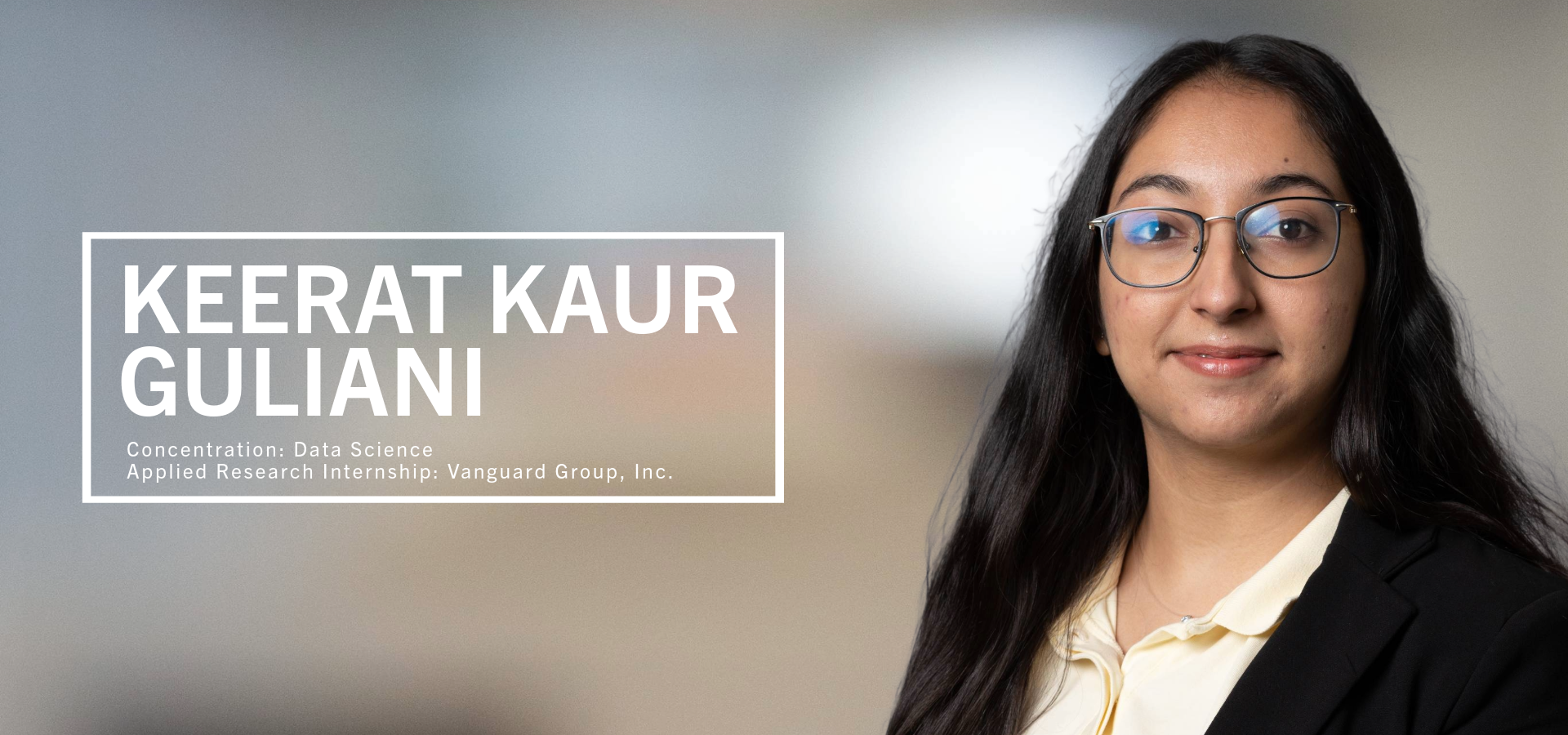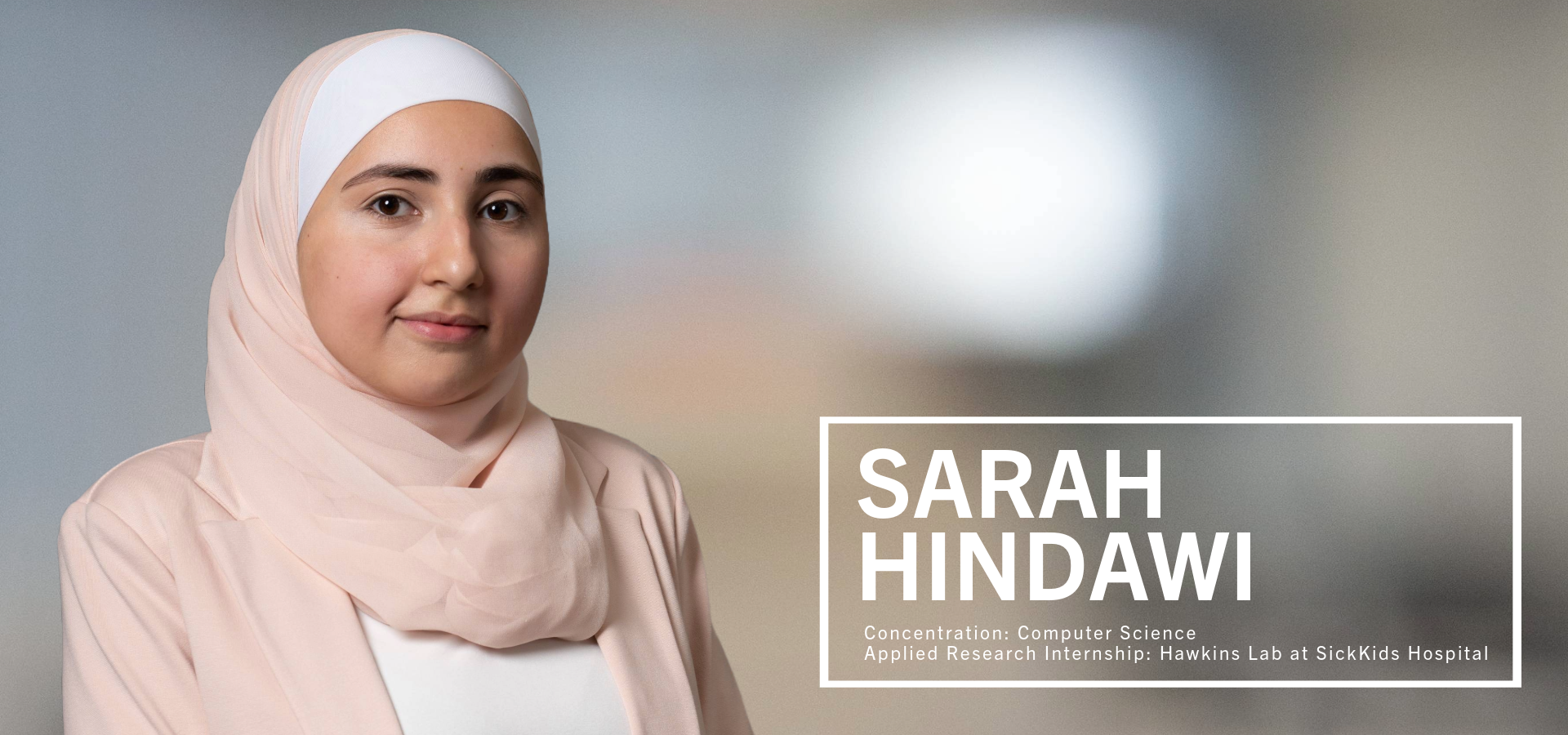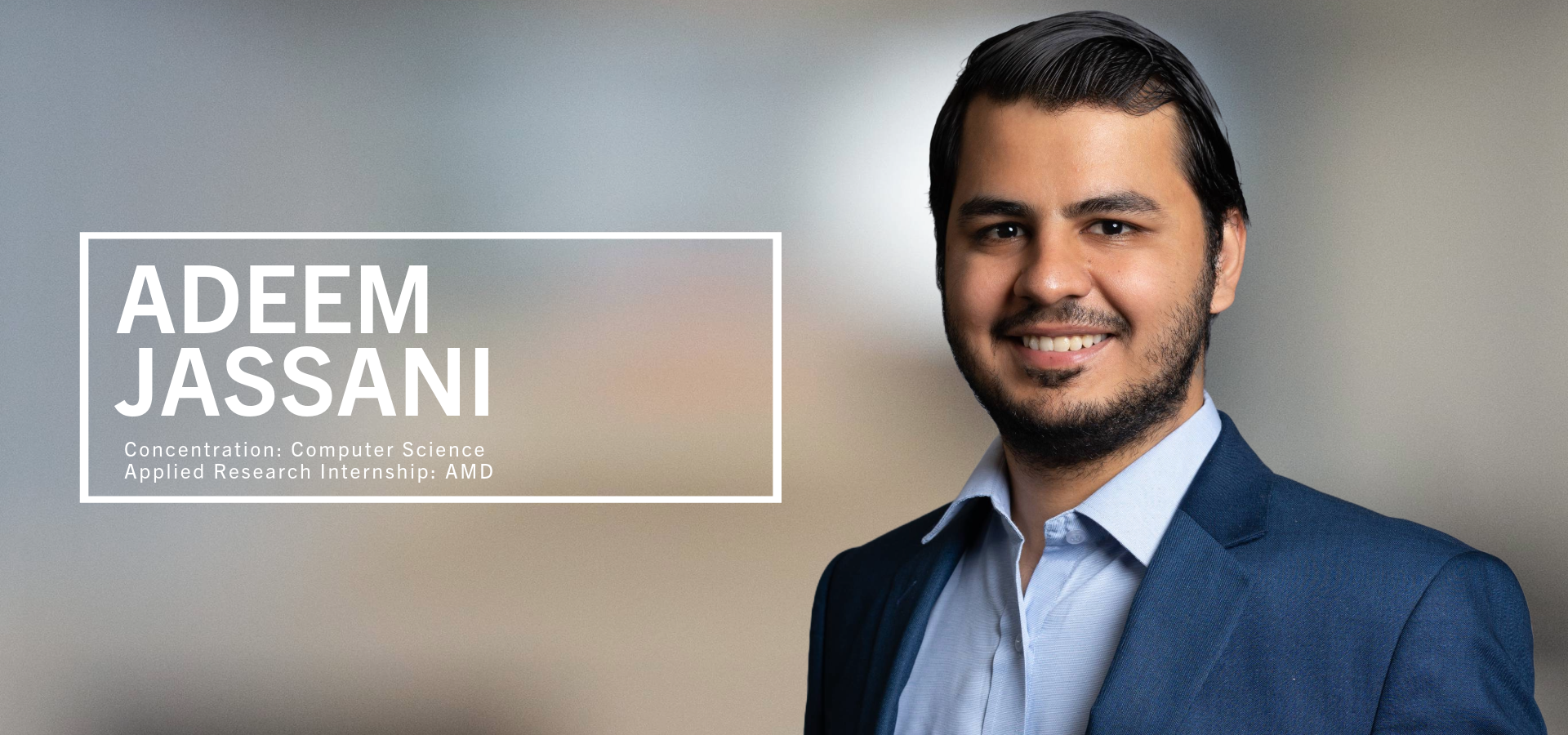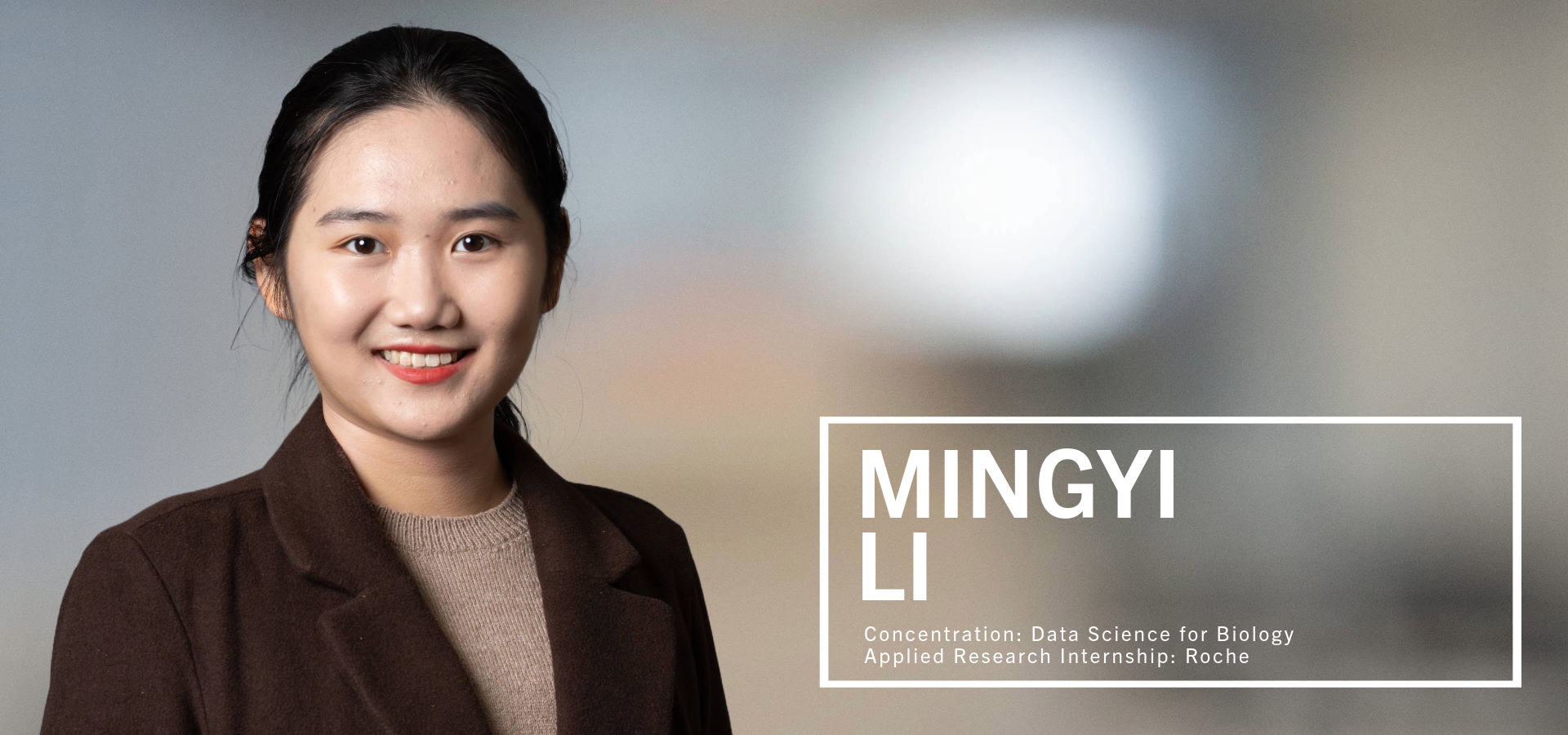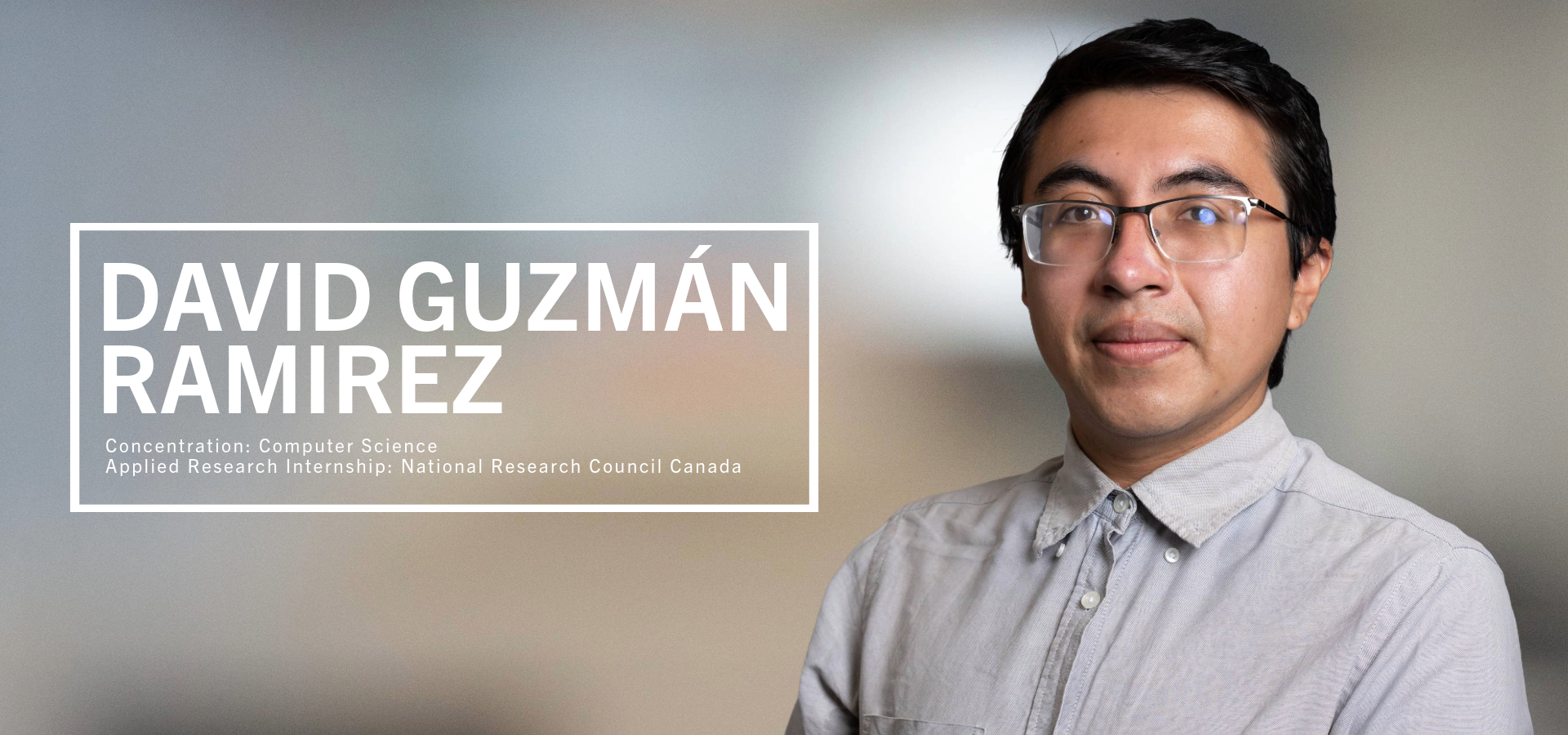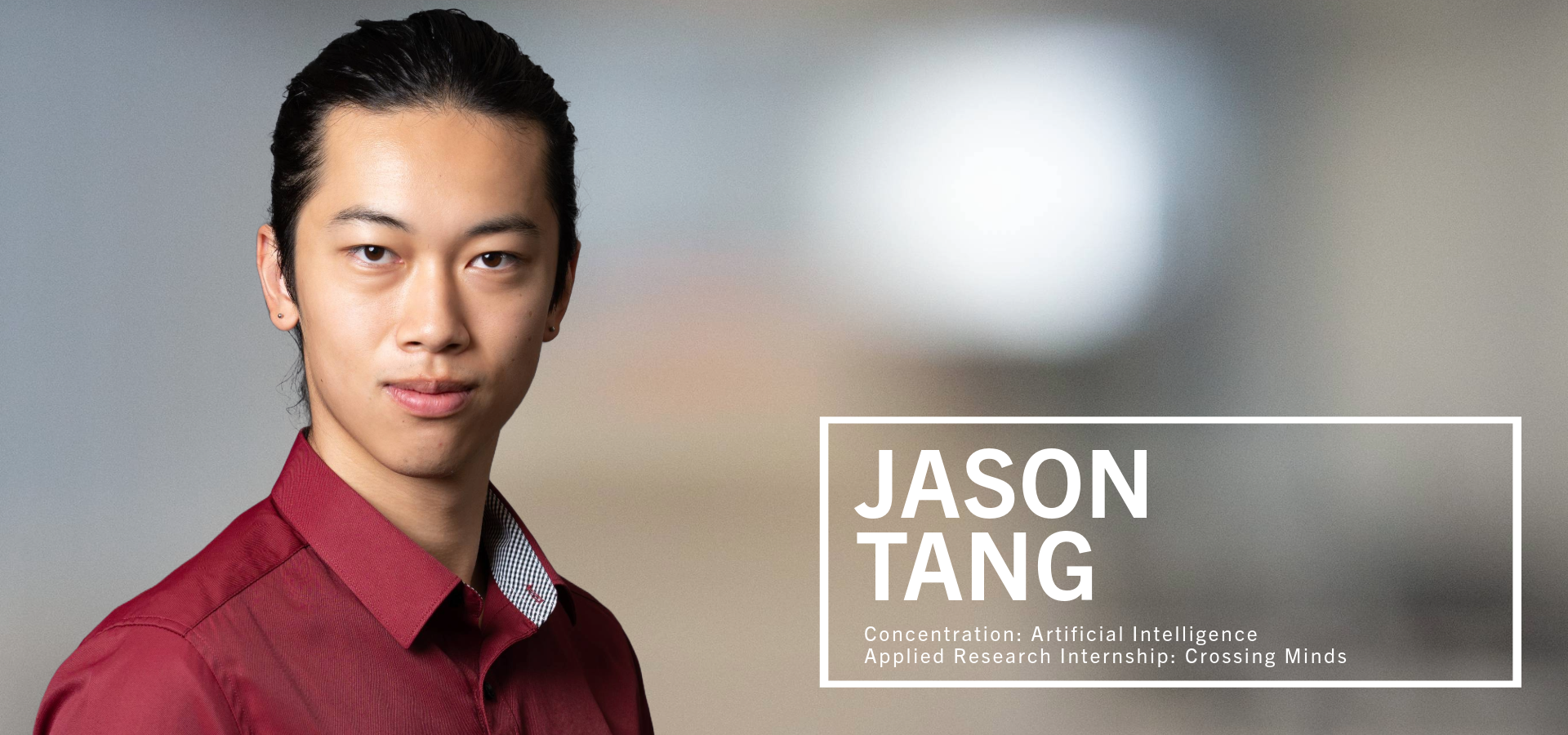What was your educational background and industrial experience before joining the MScAC program?
I completed my bachelor of technology at the Indian Institute of Technology (IIT) Roorkee where I graduated at the top of my class in 2022, majoring in Civil Engineering with a minor specialization in Computer Science.
Why did you apply to the MScAC program and choose the Data Science concentration?
I was drawn to the MScAC program because it aligned perfectly with my desire to engage in interdisciplinary and applied AI research during my graduate studies. The program’s structure is notably concise and includes an applied research internship, which was particularly appealing as it offered a direct pathway into the Canadian job market—an invaluable opportunity for me as an international student.
The decision to focus on the Data Science (DS) concentration stemmed from my goal to solidify my data science fundamentals. This concentration required enrollment in at least two courses from the Statistics department, renowned for its seasoned faculty and rigorous coursework. This requirement aligned well with my educational objectives for the master’s degree.
Choosing Toronto as my destination for graduate studies was influenced by several factors. After receiving offers from institutions across Canada, the United States, and Europe, I opted for Toronto due to its robust infrastructure, vibrant tech scene, and diverse cultural landscape.
What was your internship experience like being in Toronto, North America’s third-largest tech hub?
Being in Toronto, particularly at the MScAC office in the heart of downtown, was incredibly beneficial. This opened a lot of new doors for our cohort, especially during our internships, since we were so close to startups, university labs, hospitals, and big companies alike.
Describe your experience working at Vanguard Group, Inc. for your applied research internship.
At Vanguard, specifically within my team, the work environment resembles that of a start-up, but with the added perks and stability of a well-established corporation. This blend of environments was something I truly appreciated only after starting my internship. Initially, what drew me to Vanguard was the focus of the Enterprise AI team on innovation and impact – the team was pushing boundaries, publishing research, and working on enterprise-level capabilities. I could see an opportunity to hone my skills as a machine learning engineer, and formally work in the field of natural language for the first time. Bundled together, all this made this position highly coveted for me. The Natural Language Computing course I took as part of my MScAC curriculum prepared me very well for the internship. The assignments were very hands-on, and the course content was thorough, both in-depth and breadth. Looking back, it was not just the course, but the entire ecosystem surrounding the MScAC program that was pivotal, including its collaboration with companies like Vanguard, which helped me get recognized and allowed me to explore my potential further.
What advice do you have for any aspiring MScAC students?
- Communicate. Don’t hesitate to reach out to the MScAC team to discuss, whether you want to share feedback about a course or discuss challenges encountered during the internship process. At many times during the program, I faced dilemmas and the MScAC team has been super supportive!
- Appreciate that you have peers in the program going through very similar experiences and connect with them to learn mutually. Not all graduate programs offer this type of symbiotic setup and I am confident my peers have played a huge role in my learning over the last two years.
Best of luck, you’re in a great place!
After completing the MScAC program what and where are you off to next?
Following the completion of my internship at Vanguard Group, Inc. Canada, I have successfully secured a job with Vanguard working as a Machine Learning Engineer, Specialist.
What was your educational background and industrial experience before joining the MScAC program?
I have a bachelor’s degree in computer science from the University of Prince Edward Island, where I explored AI through several courses. This experience ignited my passion for AI’s transformative potential across industries. After graduation, I gained over a year of experience as a full-stack developer, a role I thoroughly enjoyed. However, my aspiration to innovate within the field of machine learning continually grew, leading me to pursue advanced studies in this area.
Why did you apply to the MScAC program and choose the Computer Science concentration?
The Department of Computer Science at the University of Toronto is committed to engaging students with real-world challenges through sessions with renowned guest speakers, facilitating not only exposure to global issues but also the expansion of professional networks. The Department’s MScAC program, unlike any other program out there, uniquely combines academic theory with practical, applied research opportunities directly with industry partners, The program also has a dedicated team that plays a crucial role in student success, as they provide continuous support through consultations, lectures, and by facilitating access to essential resources. All these reasons and this holistic approach to education and career preparation are exactly why I was drawn to the MScAC program.
What was your internship experience like being in Toronto, North America’s third-largest tech hub?
My internship experience in this booming tech hub was incredibly enriching. The city’s dynamic tech scene serves as a hub for a multitude of conferences and seminars, while the landscape, filled with tech startups and established companies, provides many opportunities to network, and attend sessions led by industry leaders. As a student at the University of Toronto, I was frequently invited to these events, allowing me to engage with the latest industry developments. These experiences were invaluable, offering insights into emerging trends and the rapidly evolving global tech environment.
Describe your experience working at Hawkins Lab at SickKids Hospital for your applied research internship.
I chose SickKids for my applied research because of the hospital’s renowned leadership in healthcare innovation and its commitment to using advanced technology to improve patient outcomes. SickKids’ vision of utilizing big data and AI to push the boundaries of precision medicine particularly resonated with my interests and passion, providing a clear glimpse into the future of healthcare. During my time there, I attended numerous symposiums and talks, which deepened my understanding of AI’s transformative potential on patient care. Working at Hawkins Lab exposed me to various challenges in diagnosis and treatment, and I saw firsthand how my colleagues and I were addressing these issues. This experience deepened my commitment to advancing my career in AI, driven by the potential to make tangible differences in healthcare. The rigorous academic training at MScAC, coupled with hands-on experience at SickKids, has been crucial in preparing me to contribute to the next generation of technological innovations.
What advice do you have for any aspiring MScAC students?
Actively take advantage of every opportunity presented during the program. At MScAC, you’ll have access to a wealth of networking opportunities and the chance to learn from world-renowned faculty and researchers. Embrace these opportunities to learn and grow, as they can greatly enhance your understanding and help build your career in the field.
After completing the MScAC program what and where are you off to next?
I have joined Roche as a Data Scientist, and I am truly excited about the opportunity to contribute to impactful work that promises to transform the landscape of healthcare globally.
What was your educational background and industrial experience before joining the MScAC program?
Before joining the MScAC program, I completed my bachelor’s degree in engineering physics with a minor in AI and Data Science from the Indian Institute of Technology (IIT) Bombay. After graduation, I worked for 14 months as a Data Scientist at World Wide Technology (WWT).
Why did you apply to the MScAC program and choose the Computer Science concentration?
The primary reason I applied to the MScAC program was its strong emphasis on applied research. The program’s structure, which includes real-world applied research and collaborations with top-tier industrial partners like AMD, was incredibly appealing. Additionally, the University of Toronto is renowned as the birthplace of modern AI, which made it an ideal place for my studies.
What was your internship experience like being in Toronto, North America’s third-largest tech hub?
AMD has a strong presence in Toronto, with the major graphics technology work being conducted here. This location allowed me to connect with other teams working on ground-breaking projects, expanding my horizons, and providing a comprehensive view of the tech industry’s dynamic environment. Being in Toronto, a vibrant tech hub, also offered numerous opportunities for networking and professional growth.
Describe your experience working at AMD for your applied research internship.
The academically rigorous courses at the University of Toronto’s Department of Computer Science are taught by professors who are top experts in their fields yet very approachable and provide a solid foundation. The student community is also exceptional, with shared interests and aspirations that foster a collaborative environment. At AMD, the most rewarding aspects are the impactful projects and the talented, passionate team dedicated to building cutting-edge technology. Working in applied research at AMD gives invaluable insights into how research integrates into products and its significance from a business perspective.
What advice do you have for any aspiring MScAC students?
My advice to aspiring MScAC students is to fully engage with the rigorous coursework and collaborate with peers to deepen your understanding. Additionally, being proactive and taking full advantage of opportunities during the MScAC Internship Expo event is crucial.
After completing the MScAC program what and where are you off to next?
I have secured a position at AMD as a Senior Engineer, focusing on AI performance research within their new AI group.
What was your educational background and industrial experience before joining the MScAC program?
I completed a bachelor’s degree in statistics at Xiamen University. Before joining the MScAC program, I completed several software/AI-related internships at two big tech companies and two fintech firms in China. I also worked as a Research Assistant while studying at Xiamen University.
Why did you apply to the MScAC program and choose the new Data Science for Biology concentration?
I was impressed by the alumni success stories on the MScAC website and noticed similarities between myself and the alumni before me, especially those from the Data Science concentration. My passion lies in pursuing studies in data science infrastructure. I knew the MScAC program would provide the flexibility to focus on the theoretical aspects of Data Science and gain hands-on experience.
What was your internship experience like being in Toronto, North America’s third-largest tech hub?
It has been beyond my expectations living, studying, and interning in the city of Toronto! Being the 3rd largest tech hub, Toronto has fostered an environment for tech innovation, entrepreneurship, and data-driven business advancement. For my MScAC applied research internship I was at Roche, which is one of the top pharmaceutical corporations in the world. I felt lucky and proud to work with and learn from my colleagues here in Toronto who I’ve learned are absolute tech-savvy professionals.
Describe your experience working at Roche for your applied research internship.
MScAC offers a wide range of advanced courses taught by great professors such as Jimmy Ba, spanning from Robotics and Computer Vision to Natural Language Processing. These helped me ace my technical interviews. Working at Roche for the applied research internship, I was amazed by the fast pace and agile collaboration of cutting-edge technologies being developed within such a gigantic multinational company. I got to absorb knowledge, build connections, and hone my soft skills. I chose Roche because I knew I would have the exposure and steep learning curve that I strived for. I was new in the health/biotech sector, but I’ve always been interested in enabling solutions to save lives. I sincerely share Roche’s notion of “doing now what patients need next”.
What advice do you have for any aspiring MScAC students?
Cherish your time being an MScAC student – get to know your peers because you have a powerful alumni network at your fingertips, including our cohort. So, connect with us!
After completing the MScAC program what and where are you off to next?
After my internship, I successfully secured a permanent full-time role as a Platform Engineer. I also received offers from a local tech startup, a hedge fund, and a management consulting firm, all of which are dream companies. All these organizations are actively aware of the MScAC program and are actively hiring graduates from the program.
What was your educational background and industrial experience before joining the MScAC program?
I earned my bachelor of science in Physics followed by a bachelor of science in Data Science from the Universidad Nacional Autónoma de México (UNAM). Following my studies, I worked as a Data Scientist in Mexico City at an e-commerce company, where I helped deploy machine learning models.
Why did you apply to the MScAC program and choose the Computer Science concentration?
I applied to the MScAC program because of its strong focus on the practical applications of computing, which aligned perfectly with my passion for Machine Learning and NLP. The opportunity to be in Toronto also presented immense possibilities for networking and career advancement in cutting-edge technological research and development.
What was your internship experience like being in Toronto, North America’s third-largest tech hub?
My internship experience in Toronto was immensely rewarding! Toronto is a hub for AI research, abounding with opportunities. Additionally, the Ontario government plays a pivotal role in fostering innovation by offering substantial support and funding for both students and companies engaged in AI research, like the Vector Scholarship in AI which I was fortunate to receive.
Describe your experience working at National Research Council Canada for your applied research internship.
I chose the National Research Council (NRC) because of its commitment to pioneering research in language technologies that benefit society. During my time there, I had the privilege of collaborating with leading researchers in NLP, whose guidance was invaluable in advancing my career in both academia and industry.
What advice do you have for any aspiring MScAC students?
For aspiring MScAC students, my advice is to actively engage with all the resources the program offers. Network with peers and professors, and participate in workshops and seminars. This will not only enhance your learning but also significantly impact your professional development and career trajectory.
After completing the MScAC program what and where are you off to next?
Since graduating from the MScAC program, I have secured a position as a Data Scientist at J.D. Power. This role allows me to leverage my skills in data engineering and machine learning. At the same time, I am actively preparing for PhD applications to further advance my academic and professional career.
What was your educational background and industrial experience before joining the MScAC program?
I completed my bachelor’s degree in computer science at the University of Toronto. I interned twice as a Data Scientist and worked for a year as a Full-Stack Engineer at Amazon.
Why did you apply to the MScAC program and choose the AI concentration?
I chose the MScAC program because I was familiar with the high quality of the professors and department at the University of Toronto. Additionally, being already settled in Toronto, I appreciated the city’s vibrant tech scene and its status as a major hub of technical talent, offering numerous professional and networking opportunities.
What was your internship experience like being in Toronto, North America’s third-largest tech hub?
My internship experience in Toronto was highly enriching, particularly due to the city’s thriving startup environment. This provided substantial learning opportunities and a diverse range of options, allowing me to select an internship closely aligned with my interests.
Describe your experience working at Crossing Minds for your applied research internship.
My internship at Crossing Minds was marked by excellent support in both technical expertise and research ideation. The company’s focus on ML-driven recommendation systems was a novel and intriguing area for me. The research I conducted during my internship not only helped me secure a position with a focus on machine learning but also resulted in a publication.
What advice do you have for any aspiring MScAC students?
Don’t put all your private keys on one hard drive.
After completing the MScAC program what and where are you off to next?
After completing the MScAC program I’ve secured a job as a Software Engineer at Stripe within the Risk organization.
